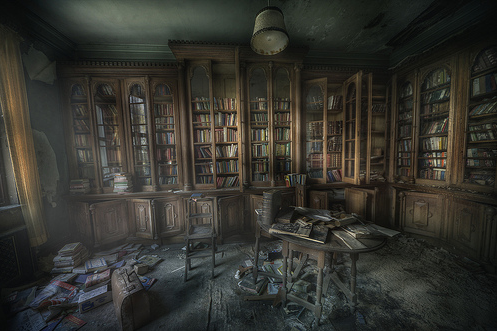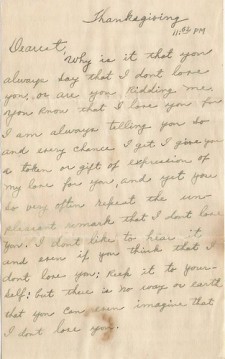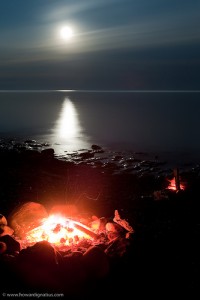Essay by Joe McGonegal
The Struggle Between Writing and Doing
On the first day of my career as a high school English teacher, I tacked a Ben Franklin quote to the bulletin board in my classroom:
Either write something worth reading or do something worth writing.
For years, I spent my workdays by the board that contained this solemn epigram. During my daily off-topic pep talks about life, I often directed my students—both the talented ones and the ones who despised me—to Franklin’s order, prodding them to follow it in one way or the other.
Eventually, the words took their effect on me, possibly more than on any of them.
At 15, I discovered poetry, filling notebooks with my verses in study halls. At 21, I was penning angry editorials to the college paper. At 28, I was writing the last serious love poems to the last serious girlfriend out there, publishing verses in journals with her name hidden somewhere in the syntax.
She left in 2001, I moved, wars began. I started waking up at 5 a.m., marathon running, writing long letters to old lovers who ignored me, working 15 hours a day at teaching, getting really good at it.
Two marathons later, and 30 pounds lost, my future wife came along. She was the first girl I didn't court with poetry, letters, or fiction. She liked the stability behind and surrounding me. I reminded her of her father, an administrative law judge in central Pennsylvania.
With every kiss, the 15-, 21-, 28-year-old self was probably furious with me—each in his own way—for selling out. Like all future selves, I didn’t care.
Nine years later, we’re married and starting a family. Now, for the first time in my life, I write more than I do anything else. I do it for a living. I cover a beat of 800 boys and men in an all-boy school with a nearly all-male faculty. I write 500 stories—hard news and features—a year. PR pays, I’ve found.
But where’s my own writing? The voice is still down there, but now I don’t tap for a vein. I shallow-mine, shale fracking with great energy, producing plenty to live on. I network, draft and redraft and collaborate, share ideas as soon as I have them instead of burrowing holes to bury them in for later use.
Writing used to be the refuge from the world that didn’t understand—my own place in a tent where older brothers couldn’t come, nor shallow friends, nor hundreds of classmates.
Now I'm seeking a quiet refuge from the hundred and one things I’ve become other than a writer. I drink and party with friends at rock concerts, play tennis several times a week, distance run with another friend, fish with a brother, boat with another, volunteer at a GED school, raise money for nonprofits, work on a second master’s degree.
Because of/inspired by/perplexed by this pile of passions that are my life, I write still, at 38 years old, to figure out who it is I am. The humor piece for an online journal, the eulogy for a beloved friend, the tales of our married life that my wife and I write together. Halfway through each I’ll discover a notch in my growth, like those that measured our heights on the summer cottage wall. There’s still something about truth to this venture. Words don’t fail. Words will always be enough. Words can express what is in our hearts.
My wife and I came to Maine this weekend because, finally, the little cabin behind my parents’ house was available, the one where we could set out our computers for the weekend and get our work done away from the crowded family cottage.
She had a pile of cases to digest, and I, a new short story half finished. But then the nephews came ambling in, and the fishing rods came out—and the frisbees and soccer balls and tennis rackets—and we forgot all about those documents on our to-do lists.
At night, we said, we’ll get them done. But dinner, wine, guitars, campfires, stars—you know, life. I’ll always be stuck between the writing and the doing. So hard to stay at the desk when I’m called outside.
The life so short, Chaucer moaned, the craft so long to learn.
And Thoreau: Was he exalting the youth, who gets together his materials to build a bridge to the moon, or the middle-aged man, who builds a woodshed with them?
I’ve got my materials in hand, the life yet ahead and the craft yet within, and Franklin’s dictum still on the wall, commanding the worthy life of me—or the worthy line.
Publication Information
- Autobiography and Other Writings, by Benjamin Franklin (Oxford University Press, 1993).
- “The Birds’ Parliament” by Geoffrey Chaucer, translated by Theodore Morrison. The Portable Chaucer (Penguin, 1975).
- The Writings of Henry David Thoreau, Volume 10, by Henry David Thoreau and Ralph Waldo Emerson (Houghton, Mifflin, and Company, 1893).
Art Information
- “Why Do You Say I Don't Love You” by Sarah Parrott; Creative Commons license
- “Campfire in Moonlight, Castle Danger, MN, USA” by Howard Ignatius; Creative Commons license
Joe McGonegal's first book, A Ball in Roman City, rolled off the Underhill I.D. Elementary School Press in 1982 in a limited printing (one copy). In the three decades since, Joe has written about balls in other cities and specifically about city life and things maritime in and around Boston.
When not freelancing, Joe serves as director of communications at Catholic Memorial School and tweets @joemcgonegal and @brooklinevill. More of his work can be found on his blog.
This piece began as a "Why I Write" essay in Martha Nichols's magazine writing course at the Harvard University Extension School.




